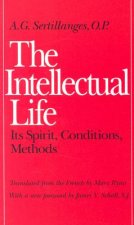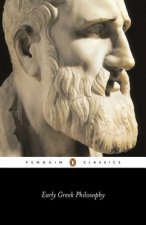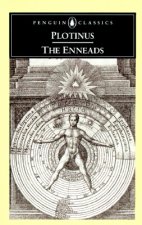
Kód: 02558037
Kant on Mind, Action, and Ethics
Autor Julian Wuerth
In this book Julian Wuerth offers a radically new interpretation of Kants theories of mind, action, and ethics. As the author of a Copernican revolution in philosophy, Kant grounded his philosophy in his positive theory of the mi ... celý popis
- Jazyk:
 Angličtina
Angličtina - Vazba: Pevná
- Počet stran: 368
Nakladatelství: Oxford University Press, 2014
- Více informací o knize

Mohlo by se vám také líbit
Dárkový poukaz: Radost zaručena
- Darujte poukaz v libovolné hodnotě a my se postaráme o zbytek.
- Poukaz se vztahuje na celou naši nabídku.
- Elektronický poukaz vytisknete z e-mailu a můžete ihned darovat.
- Platnost poukazu je 12 měsíců od data vystavení.
Více informací o knize Kant on Mind, Action, and Ethics
Nákupem získáte 381 bodů
 Anotace knihy
Anotace knihy
In this book Julian Wuerth offers a radically new interpretation of Kants theories of mind, action, and ethics. As the author of a Copernican revolution in philosophy, Kant grounded his philosophy in his positive theory of the mind, which remains an enigma two centuries later. Wuerths original interpretation of Kants theory of mind consults a far wider range of Kants recorded thought than previous interpretations, revealing a fascinating evolution in Kants thought in the decades before and after his 1781 Critique. Starting in the 1760s, Kant recognized the unique status of our epistemic contact to ourselves. This is the sole instance of our immediate epistemic contact with a substance, of being a substance, and it is the sole instance of epistemic contact with something other than the particular states of inner sense. Contrary to empiricists, Kant thus rejects the reduction of the self to a bundle of mental states of inner sense. But Kant also rejects the rational psychologists assumption that the souls substantiality and simplicity implies its permanence, incorruptibility, and immortality. As Kant developed his transcendental idealism, he eventually pinpointed the source of their errors, a source neither unique to a particular, historical school, nor random. It is instead a deep, natural, and timeless transcendental confusion. Kants new account of substance allows him to draw new distinctions in kind between sensibility and understanding and between phenomenal and noumenal substance, setting the stage for a transcendental argument that only at the phenomenal level do substantiality and simplicity imply permanence and incorruptibility. Wuerth next undertakes a groundbreaking study of Kants theory of action and ethics. He first maps Kants notoriously vast and complex system of the minds powers, drawing on all of Kants recorded thought. This system structures Kants philosophy as a whole and so provides crucial insights into this whole and its parts, including Kants theory of action, a persisting stumbling block for interpreters of Kants ethics. Wuerth demonstrates that Kant rejects intellectualist theories of action that reduce practical agents to pure reason. We are instead irreducibly both intellectual and sensible, exercising a power of choice, or Willkur, subject to two irreducible conative currencies, moral motives and sensible incentives, as Kant makes clear long before his 1785 Groundwork. Immoral choices at odds with the former can thus nonetheless be coherent choices in harmony with the latter. Wuerth applies these new findings about Kants theory of mind and action to an analysis of the foundations of Kants ethics. He rejects the dominant constructivist interpretation in favor of a moral realist one. At the heart of Kants Enlightenment ethics is his insistence that the authority of the moral law ultimately rests in our recognition of its authority. Kant guides us to this recognition of the authority of the moral law, across his works in ethics and his various formulations of the moral law, using a single elimination of sensibility procedure. Here Kant systematically rejects the pretenses of sensibility to isolate reason and its insights into moral right and wrong. Precisely because immoral choice remains a coherent alternative, however, moral virtue demands our ongoing cultivation of our capacities for cognition, feeling, desire, and character.
 Parametry knihy
Parametry knihy
Zařazení knihy Knihy v angličtině Humanities Philosophy History of Western philosophy
3813 Kč
- Plný název: Kant on Mind, Action, and Ethics
- Autor: Julian Wuerth
- Jazyk:
 Angličtina
Angličtina - Vazba: Pevná
- Počet stran: 368
- EAN: 9780199587629
- ISBN: 0199587620
- ID: 02558037
- Nakladatelství: Oxford University Press
- Hmotnost: 698 g
- Rozměry: 240 × 158 × 26 mm
- Datum vydání: 28. August 2014
Oblíbené z jiného soudku
-

Meditations
245 Kč -

The Myth of Sisyphus
169 Kč -

Why I Am so Clever
91 Kč -

Meditations
410 Kč -

Republic
279 Kč -

Beyond Good and Evil
258 Kč -

Gay Science
316 Kč -

Aphorisms on Love and Hate
90 Kč -

Beyond Good & Evil
322 Kč -

Meditations on First Philosophy
253 Kč -

Intellectual Life
454 Kč -

Socrates' Defence
90 Kč -

Discourses, Fragments, Handbook
306 Kč -

Ride the Tiger
493 Kč -

Thus Spoke Zarathustra
276 Kč -

Fear and Trembling
276 Kč -

Birth of Tragedy
90 Kč -

Early Greek Philosophy
357 Kč -

Groundwork for the Metaphysics of Morals
286 Kč -

Gorgias
232 Kč -

Brief History of Analytic Philosophy - From Russell to Rawls
955 Kč -

On Duties
323 Kč -

Discourses and Selected Writings
306 Kč -

Nicomachean Ethics
136 Kč -

Nausea
276 Kč -

Letters from a Stoic
276 Kč -

Meditations
502 Kč -

Simulacra and Simulation
416 Kč -

Phenomenology of Spirit
551 Kč -

Twilight of the Idols with The Antichrist and Ecce Homo
136 Kč -

On Liberty, Utilitarianism and Other Essays
250 Kč -

On the Suffering of the World
196 Kč -

Human Condition
511 Kč -

On the Shortness of Life
223 Kč -

Existentialism Is a Humanism
213 Kč -

Think
303 Kč -

Guide to the Good Life
434 Kč -

How To Be A Stoic
431 Kč -

The Symposium
233 Kč -

Human, All Too Human & Beyond Good and Evil
131 Kč -

At The Existentialist Cafe
358 Kč -

Undiscovered Self
708 Kč -

Passions of the Soul and Other Late Philosophical Writings
303 Kč -

The Trouble With Being Born
306 Kč -

Leviathan
136 Kč -

City of God
454 Kč -

Ecce Homo
302 Kč -

Enneads
381 Kč -

On Friendship
202 Kč
Osobní odběr Praha, Brno a 12903 dalších
Copyright ©2008-24 nejlevnejsi-knihy.cz Všechna práva vyhrazenaSoukromíCookies






 Vrácení do měsíce
Vrácení do měsíce 571 999 099 (8-15.30h)
571 999 099 (8-15.30h)